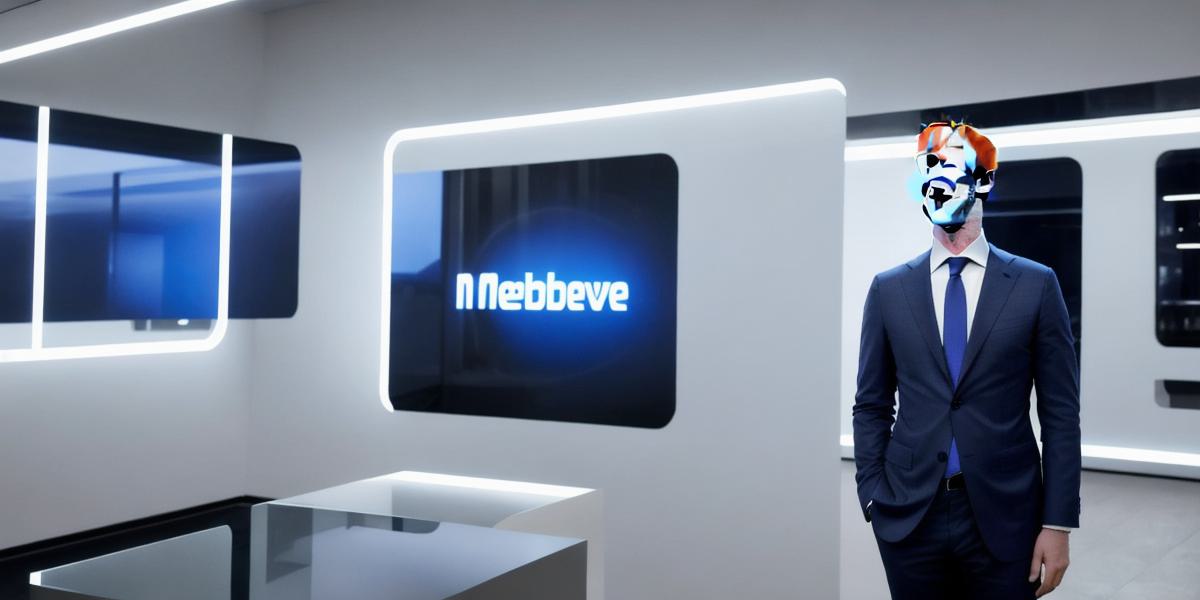When we consider the impactful figures in the realm of technology, Mark Zuckerberg undeniably stands as a pivotal figure, particularly when it comes to the metaverse. The metaverse, a collective virtual shared space, including the sum of all virtual worlds, augmented reality, and the internet, has been an intriguing concept for decades. However, it was with Zuckerberg’s entrance into this digital landscape that it began to take shape in a more tangible form.
**Defining the Metaverse: From Internet 1.0 to Web3.0**
Before diving deep into Zuckerberg’s role in metaverse development, it’s crucial first to understand what we mean by this term. The metaverse is not just a virtual world or an online game but rather an integrated network of interconnected digital spaces. It encompasses the convergence of physical and virtual realities, creating new opportunities for social interaction, economic activities, and creativity.

As technology progressed from Internet 1.0 to Web2.0 and now into Web3.0, the metaverse has evolved alongside it. From simple web pages to interactive websites and now to immersive virtual environments, this digital evolution has been shaped by visionaries like Zuckerberg.
**The Birth of Facebook’s Metaverse: Oculus and Horizon**
In 2014, Zuckerberg made a significant move in the metaverse direction when Facebook acquired Oculus VR, a leading virtual reality headset manufacturer. This acquisition was seen as Facebook’s first step towards creating a fully-realized metaverse. With this purchase, Zuckerberg stated his intent to make virtual reality a social medium and not just a gaming platform.
Fast forward to 2021, Facebook rebranded itself as Meta Platforms Inc., officially announcing its commitment to developing the metaverse. The name change was accompanied by the introduction of Horizon, Meta’s virtual reality platform designed for social interaction. With this announcement, Zuckerberg solidified his stance as a pioneer in the metaverse development.
Innovations and Applications: Social Interaction, Education, and Economics
The metaverse envisioned by Zuckerberg goes beyond simple gaming or entertainment. It is designed to provide new opportunities for social interaction, education, and even economic activities. With Horizon’s avatar-based social environment, users can meet up with friends, attend concerts, or even work together on projects in a virtual space.
Moreover, educational institutions are already adopting virtual classrooms, making learning more accessible and interactive for students from all corners of the world. Furthermore, the metaverse also provides opportunities for economic activities, such as buying virtual real estate, starting businesses, and engaging in trade – all within this digital realm.
**A New Digital Frontier: Challenges and Opportunities**
With Zuckerberg’s push towards the metaverse, a new digital frontier is emerging. While there are certainly challenges to be addressed, such as privacy concerns, data security, and technical limitations, the opportunities far outweigh them. The metaverse could revolutionize how we interact socially, learn new skills, and even conduct business transactions.

In conclusion, Mark Zuckerberg’s impact on the metaverse development is significant. His vision of making virtual reality a social medium has paved the way for this digital realm to evolve from a mere concept into a tangible space. The metaverse holds immense potential, with applications ranging from social interaction and education to economic activities and beyond. As we continue to explore this new frontier, the possibilities are endless.
